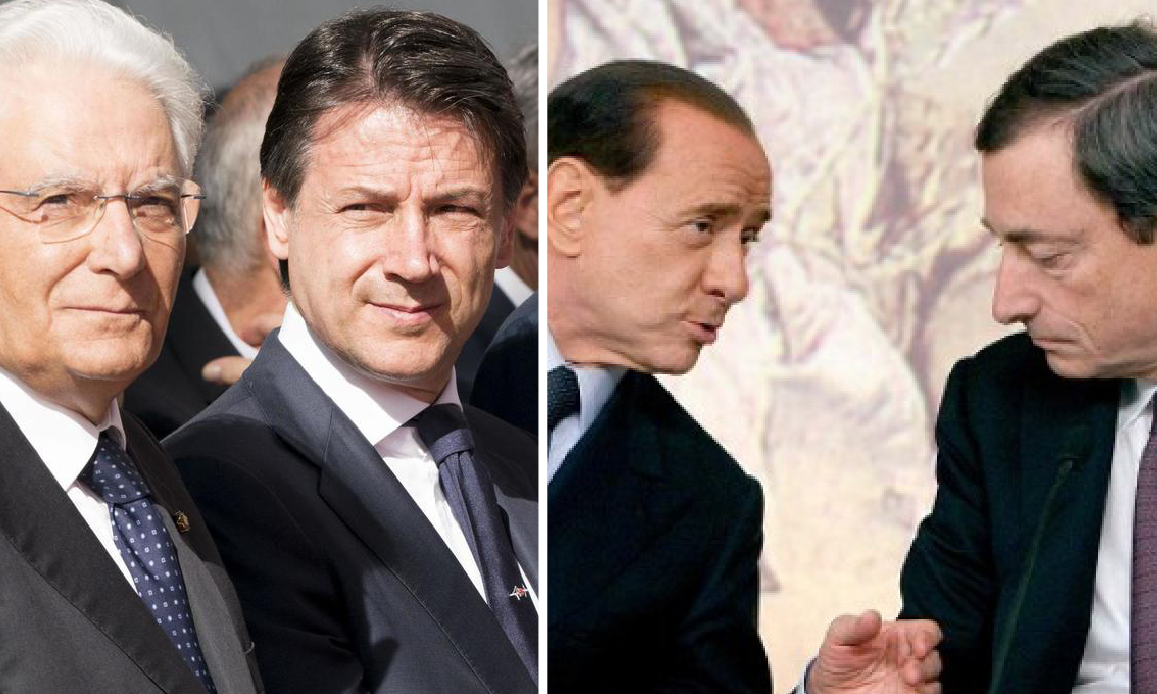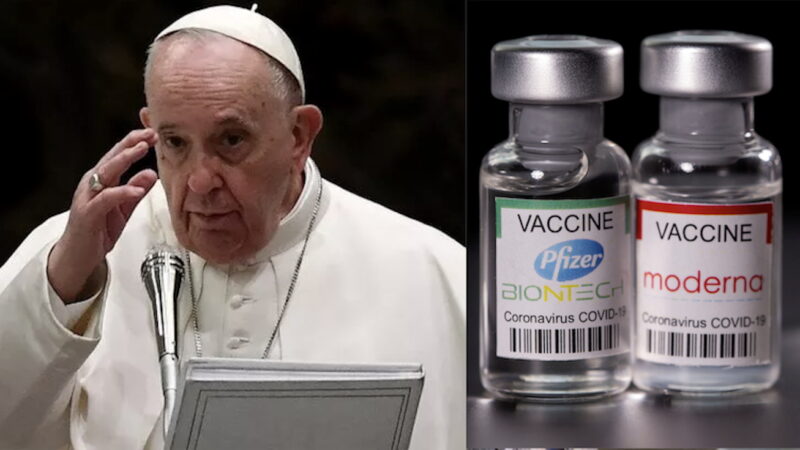Italy: PM Conte Resigned. New Government with Former ECB President Mario Draghi?

On the cover pics from left, Italian president Sergio Mattarella, PM on resignation Giuseppe Conte, former PM Silvio Berlusconi, former ECB president Mario Draghi
by Fabio Giuseppe Carlo Carisio
Versione originale in Italiano
At 12.40 (Italy hour, UTC + 1) today, Tuesday 26 January, the Conte Bis government is formally concluded. As reported by ANSA, the Prime Minister left the Quirinale Palace where he handed over his resignation to the President of the Republic Sergio Mattarella. Conte has been out by car half an hour after his arrival. The premier had already communicated his resignation in the CdM this morning. A CdM which, according to what is learned, closed with a “very affectionate” moment and the applause of ministers for the premier. “I thank the entire government team, every single minister, for every day of these months together,” Conte said.
The heads of delegation of the M5s Alfonso Bonafede, of the Pd Dario Franceschini and of Leu Roberto Speranza would have reiterated their support for Giuseppe Conte in the Council of Ministers, after the prime minister announced his decision to resign. While Silvio Berlusconi. Forza Italia center-right wing party’s leader, did not even wait for the formalization of his resignation to open the doors to a government of national unity that already has the flavor of a great partnership with the Democratic Party in view of a “technical” candidate like Mario Draghi, former European Cental Bank president.
To betray the Conte government supported by the 5 Star Movement and the Democratic Party was the former secretary of the PD and former premier Matteo Renzi who, as an ally of the yellow-red majority with his new Italia Viva party, made the support during the vote of confidence in the Senate, where the numbers of the ruling coalition have thus become critical.
Renzi, in order not to deprive himself of the possibility of re-entering the alliance games in a new majority, guided his senators towards a diplomatic abstention which in fact prolonged the agony of the Conte government, which survived the no-confidence motion in the Senate thanks to the votes of the senators for life and a narrow majority 156 to 140, 6 votes less than the absolute necessary to govern. The leader of Italia Viva then announced the resignation of his ministers due to the controversy over the non-sharing of the plan to use the over 200 billion euros of European Union funding from the so-called Recovery Fund.
In reality, the disagreements between the former Prime Minister Renzi and the President of the Council in office Giuseppe Conte nestle in the centralism disputes and in the ambitions of the leader of Italia Viva himself for the delegation on the management of Intelligence, entrusted to the diplomatic adviser and former ambassador Piero Benassi a few days before the government crisis. The political control of the 007 has assumed considerable importance in Italy after the PalamaraGate scandal, the storm that hit the top of the judiciary, and the multiple implications in the alleged ObamaGate investigation that emerged in relation to Link University of Rome.
UKRAINEGATE, CIA-DEEP STATE’S PLOT AGAINST TRUMP with two whistleblowers and Italian ties
On January 20, according to what was reported by RaiNews, the Copasir (the parliamentary committee for controlling the activity of the Italian secret services), had asked for the hearing of Prime Minister Giuseppe Conte, the head of the press office of Palazzo Chigi Rocco Casalino and the minister degli Esteri Luigi Di Maio in relation to the story of the fishermen detained for a few months in Libya but also asked for the hearing of Senator Matteo Renzi “in order to enrich himself with further and possible news relating to the story concerning the visit in 2019 of the Attorney General of the United States, William Barr “.
Beyond these scabrous background the unknown now remains about Italy’s political future. The President of the Republic Sergio Mattarella is in fact faced with three ways: a recourse to early elections, a government of Langhe agreements or an assignment to the center-right of Lega, Fratelli d’Italia and Forza Italia in an attempt to find a majority in Parliament useful to govern. (read more)



